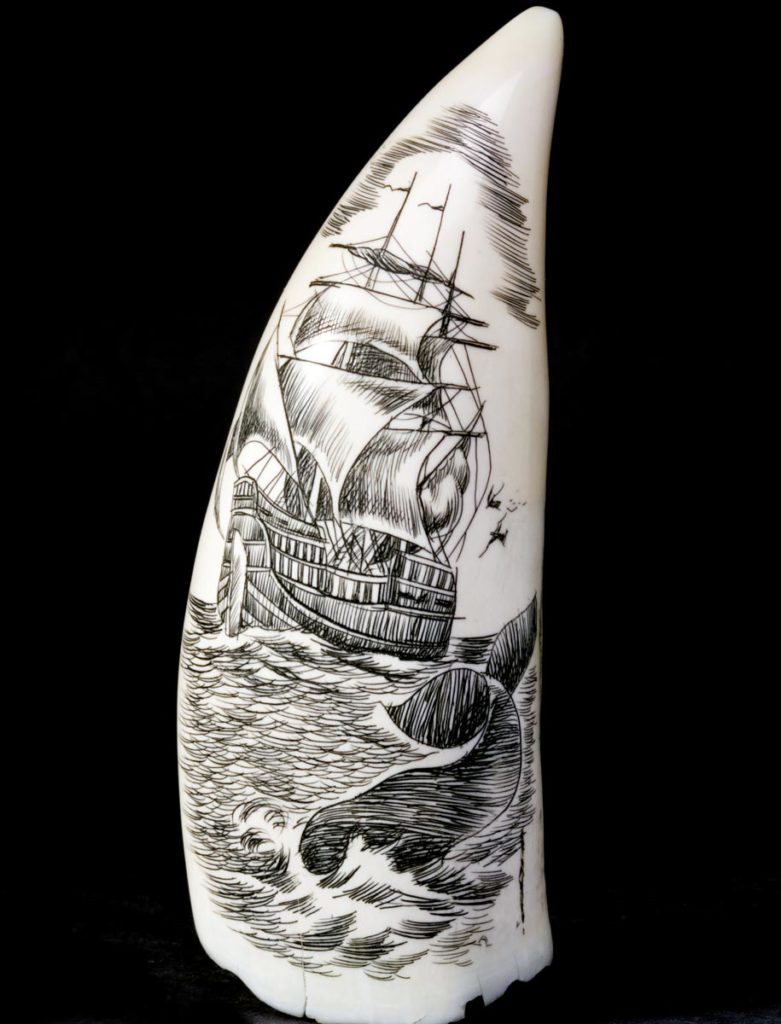Scrimshaw pieces make up what is one of the busiest categories on Mega Ministore. Our listings are comprised of both bone and tooth scrimshaw; some are pure art pieces and some are practical (for example, our knives with scrimshaw handles and the scrimshaw jewelry). Antique scrimshaw as well as modern works by Native Americans are listed here.
As an antique, scrimshaw only goes back to the early 1800s, when whalers would use any carving implement they could find on ship and carve scenes of varying cleverness into pieces of bone, tooth or tusk. The carved lines would then be enhanced with coloring, sometimes candle ash, tobacco juice, or a commercial pigment.
More: Antique Sextant: Highly Coveted Nautical Artifacts
The scrimshaw industry these days is informed almost entirely by various national and international laws relating to hunting and whaling. In the early days, antique scrimshaw was made from the teeth and bones of sperm whales, which were abundant and hunted en masse. Ivory from African elephants has also been widely used for scrimshaw art.
Antique scrimshaw is legal to buy and sell, and is defined as any piece crafted from ivory-bearing creatures (i.e., walrus and sperm whales) before 1973. (An exception is elephant ivory, which has a legal limit of 1988 or before). Furthermore, legal restrictions are lifted for modern (non-antique) scrimshaw crafted by native Alaskan Eskimo artisans. This last category contains some big names and often accounts for some of the higher-priced items in our listings.
Browse 575 current Scrimshaws for sale offers here
The durability of real antique scrimshaw is, due to the porous nature of teeth and especially bone, an eternal problem for collectors. Dryness can rob a collection of a beautiful piece, and many serious collectors learn to introduce oil into the object and wait for it to seep into the pores. An unobtrusive wax coating added afterwards can greatly increase the life span of a piece of antique scrimshaw.
Although carved scrimshaw is more popular for collectors, there is also a type of scrimshaw created by sculpture. Some pieces combine a sculpted shape with carvings, and recently artists have even been experimenting with multiple colors rather than the traditional dark or black coloring.
See also: Rare and Antique Bosun Ship Whistle Collectibles
Scrimshaw art is popular because it is so related to the sea – or, more to the point, to man’s interaction with the sea. Whaling was a monumentally difficult and dangerous pursuit, and a piece of bone or ivory was a hard-won possession for a proud hunter. Commercial whaling may be outlawed now, but the process of carving an intricate, beautiful scene directly on the surface of something that so strongly represents the great ocean is such a basic outpouring of human creativity that the lure of antique scrimshaw and modern scrimshaw art will remain particularly strong for many years.










